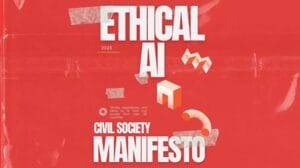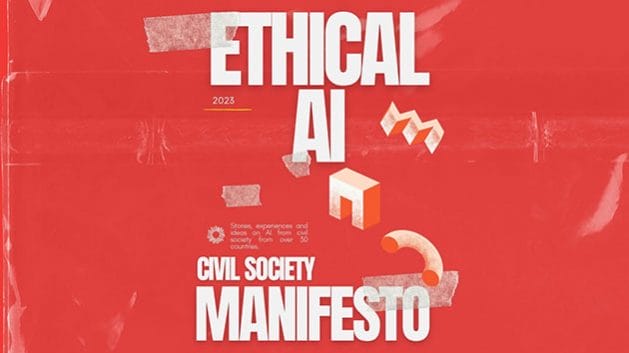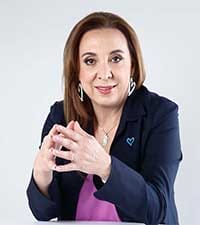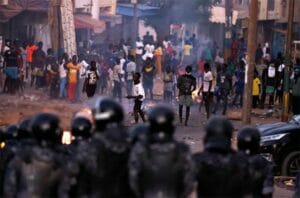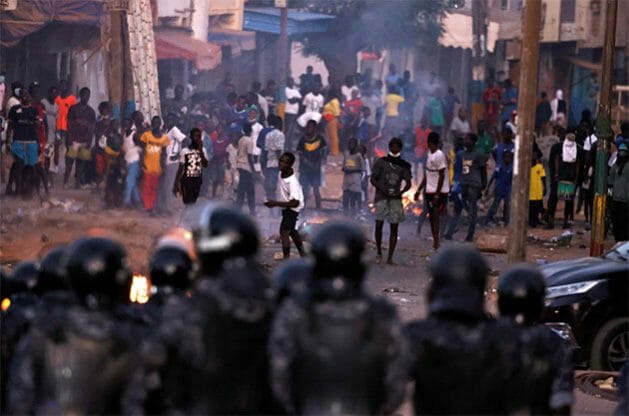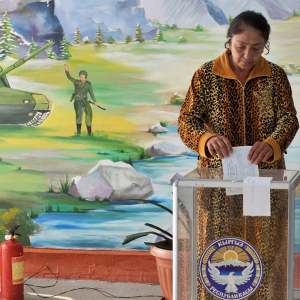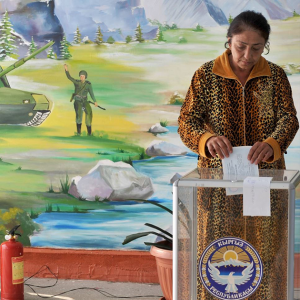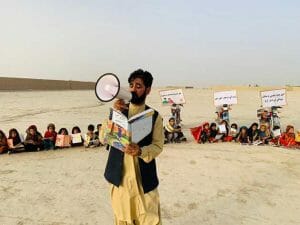
Asia-Pacific, Civil Society, Development & Aid, Editors’ Choice, Featured, Headlines, Labour, Middle East & North Africa, Poverty & SDGs, TerraViva United Nations

Workers, some from regions impacted by climate change, joined queues for accreditation outside Expo 2020 in Dubai, where COP28 is being held. Credit: Stella Paul/IPS
– With COP23 underway, researchers and activists are pointing at the plight of climate migrants.
On November 30, a few hours before the COP23 was officially inaugurated, long, serpentine queues could be seen outside Expo 2020, the venue of the COP23. Standing under the blazing sun, besides delegates and media personnel, were hundreds of migrant workers, a majority of whom were from Nepal and the Philippines.
The workers, who would later be working in different service hubs such as food kiosks and cleaning units throughout the COP, were there to get registered and get a badge that would allow them entry inside the blue zone, the high-security area within the COP. Almost all of these workers are unskilled and employed by various contractors. Despite the long hours of standing in the scorching sun, none of them was complaining—some because they have worked in much worse conditions, while others didn’t want to earn their employers’ wrath by expressing any displeasure.
“The company decides where and when we will work, as well as how long. What is there to complain about? Please understand, it’s risky,” whispered Chandra, a worker from Nepal who requested not to reveal his last name. Chandra also wouldn’t reveal his exact address except that he is “from the upper Mustang,” a district in Nepal that has seen large-scale migration of locals following massive water scarcity caused by the drying of natural springs and groundwater sources.
Chandra’s whispered sentences nearly summarize the environment in which thousands of migrants work: exposure to harsh climate conditions, inadequate pay packages, and oftentimes abuse, say human rights advocates who have documented migrants across the Middle East.
Human Rights Watch, the US-based global human rights defender, recently published a study conducted in three climate-vulnerable countries—Nepal, Bangladesh, and Pakistan—that found that migrant workers faced a strong set of labor abuses that included paying high recruitment fees, low and irregular wages, and high exposure to extreme heat. Although the research did not specifically focus on climate migrants, most of the respondents were from places that have witnessed strong climate change impacts, including extreme weather events.
Ironically, their search for a secure livelihood and a better life also made them vulnerable to working in environments that leave them exposed to similar harsh climatic conditions. For example, during the construction of Expo City, the very venue of COP28, migrant workers were seen working in scorching heat that could lead to a plethora of health challenges, including heat stroke and extreme dehydration leading to chronic kidney failure. In fact, HRW’s study found that several migrants had had kidney failure and were on dialysis, which not only cost them their jobs but also pushed them into a financial crisis as they needed to take out loans for medical treatment.
“Our study interviewed 73 current and former UAE-based workers and 42 families of current migrant workers between May and September 2023 from Pakistan, Bangladesh, and Nepal. Ninety-four of these interviewees live in or are from areas already facing the devastating consequences of the climate crisis, with scientific studies linking extreme weather events like floods, cyclones, and the salinization of agricultural lands to climate change. In addition, former and current outdoor workers interviewed were working in jobs like construction, cleaning, agriculture, animal herding, and security and were often exposed to the UAE’s extreme heat, which is also increasing due to climate change,” says Michael Page, Deputy Director in the Middle East and North Africa division at Human Rights Watch.
Climate Migration: A global snapshot
According to the International Organization of Migration (IOM), the implications of the climate crisis on migration are profound and are ever-increasing. IOM cites data produced by the Internal Displacement Monitoring Center that shows in 2022 a total of 31.8 million internal displacements due to weather-related hazards.
The World Bank Groundwell Report also shows that in South Asia, 12.5 million people were displaced by climate disasters in 2022, while the numbers are 7.5 million in Sub-Saharan Africa and 305,000 in the Middle East and North Africa region. The report projects that without immediate and concerted climate and development action, the number could go up to over 216 million by 2050.
According to the Nepal government’s own assessment, the UAE, along with Qatar, remain the most popular work destinations among young Nepalis. Data collected by the country’s Department of Foreign Employment (DoFE), 37,492 young people arrived in the UAE for work between mid-July and mid-October of the current fiscal year alone. This group includes 7,015 women and 30,477 men.
A moment of global recognition
On Friday, Nepal, one of the biggest source countries of unskilled and climate migrants, found a special mention in the speech of UN Secretary General Antonio Guterres at the inaugural ceremony of COP28. “Just days ago, I was on the melting ice of Antarctica. Not long before, I was among the melting glaciers of Nepal. These two spots are far in distance, but united in crisis. Polar ice and glaciers are vanishing before our eyes, causing havoc the world over, from landslides and floods to rising seas,” Guterres said, addressing the global leaders at the opening ceremony.
Soon after, addressing the media, Nepal Prime Minister Pushpa Kamal Dahal said that his country was preparing to establish Nepal’s rights to receive compensation for loss and damage. According to him, Guterres’s speech had drawn the world’s attention to the climate crisis in Nepal, and his government would now push for the much-deserved compensation under the newly operationalized Loss and Damage mechanism.
Maheshwar Dhakal, Joint Secretary, Ministry of Forests and Environment, who is at the COP, says that Nepal has plans to address climate-induced displacement and migrations at their root, but it needs external support and resources.
“Due to climate change and loss of livelihood, our youths are migrating rapidly to other countries. This is also destabilizing the family value system and causing social disorder as youths are separated from their family elders. This is under discussion at the political level. But at the same time, unless and until equal education, opportunities, and a level of salary (available in other countries) are made available, we cannot stop this migration. We have assessed that the total cost to implement our National Action Program (that can address climate displacement) will be USD 50 billion, of which we can only raise USD 2 billion; we need the rest from external sources such as the various funds.”
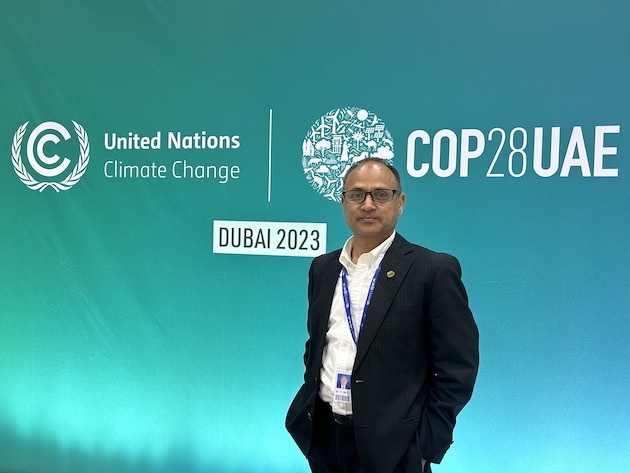
Nepal senior delegate Maheshwar Dhakal. Credit: Stella Paul/IPS
Need of the hour: a risk-based labor policy
However, experts believe that host countries, particularly the COP presidency UAE, where migrant workers make up 88% of the labor force, can take immediate steps while negotiators develop their respective arguments and strategies to claim compensation for climate refugees and displaced people under the climate finance mechanisms.
One of these is adopting a risk-based labor protection policy.
Currently, the Ministry of Human Resources and Emiratisation (MoHRE) is implementing the ‘Midday Break’ initiative, which broadly means workers should not work outside from 12 to 3 p.m. Violations of the ban can lead to a fine of Dh5,000 for each worker from non-compliant employers. The maximum fine amount is Dh50,000 when multiple workers are made to work during the banned hours.
However, the policy also allows employers to continue working through midday in areas where it is deemed unfeasible to postpone work until it is completed. These works typically include roofing, manning traffic, containing hazards or repairing damages such as interruptions to water supply or electricity, etc.
These provisions provide escape routes for employers who continue to push migrant workers into unsustainable and risky work conditions. The same ‘loopholes’ also make the labor policies inadequate for protecting migrant workers from harsh weather conditions, says Page of HRW, who thinks adopting a public health risk-based policy would be the right way to ensure migrant workers’ rights.
A risk-based approach would mean that countries, competent authorities, and employers would identify, assess, and understand the public health risks to which the workers are exposed and take the appropriate mitigation measures in accordance with the level of risk. One of these strategies would be to use the wet bulb globe temperature (WBGT) index, which is already in use in nations like Canada.
The wet bulb globe temperature (WBGT) unit considers a number of environmental factors, such as air temperature, humidity, and air movement, which contribute to the perception of hotness by people.
Page thinks that the adoption of the wet bulb globe temperature (WBGT) would be a great way to assess the risks for migrant workers in a place like the UAE because it can cover more risk factors that are usually ignored by employers but are regularly faced by the workers. For example, in some workplace situations, solar load (heat from radiant sources) is also considered in determining the WBGT as the basis of the risk assessment.
“If the UAE really cares about the protection of its migrant workforce, then they should also care about adopting a risk assessment method that is more reflective of local conditions; that will also ensure climate justice for the workers,” Page says.
IPS UN Bureau Report

